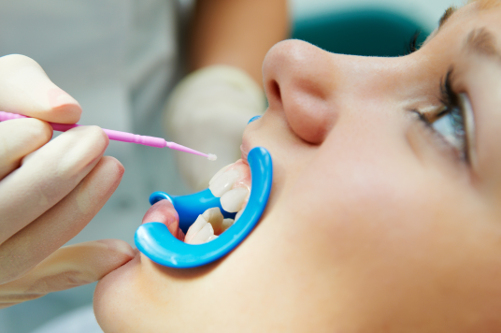Shopping cart
Subscribe to out newsletter today to receive latest news administrate cost effective for tactical data.
2478 Street City Ohio 90255
- Phone: 77 999 833 29
- Email: info@tinypearls.in
Subscribe to out newsletter today to receive latest news administrate cost effective for tactical data.
2478 Street City Ohio 90255
Preventive dentistry is the branch of dental care dedicated to maintaining oral health by preventing dental diseases before they occur. Instead of waiting for tooth decay, gum infections, or oral complications to develop, preventive care emphasizes early action,
education, and routine practices that safeguard natural teeth and gums for life. It covers a wide range of services such as routine check-ups, professional cleanings, fluoride applications, sealants, dietary counseling, and personalized hygiene instructions.
The philosophy behind preventive dentistry is simple: it is easier, less painful, and more cost-effective to prevent a dental problem than to treat it after it arises. This approach is relevant for all age groups — from children developing their first teeth to elderly patients aiming to retain natural teeth. By combining regular professional care with consistent at-home practices, preventive dentistry forms the foundation of lifelong oral wellness.

Preventive dentistry involves a structured set of practices and treatments that work together to maintain oral health. Some of the most important components include:
Routine dental visits, ideally once every six months, allow dentists to evaluate the condition of teeth, gums, and supporting tissues. These check-ups can reveal hidden problems like cavities in their early stages or silent gum disease before symptoms appear.
Scaling and polishing by a dental professional remove plaque and tartar that cannot be eliminated by brushing or flossing alone. These cleanings prevent gum inflammation and tooth decay while leaving teeth visibly brighter.
Fluoride strengthens enamel, making it more resistant to acid attacks and cavities. Professional fluoride applications are especially important for children, but adults with a high risk of decay can also benefit.
Sealants are protective coatings applied to the chewing surfaces of molars to prevent food particles and bacteria from settling in the grooves. They are most effective for children and teenagers but can also benefit adults.
Sugary foods, acidic drinks, and smoking are major risk factors for dental issues. Preventive dentistry includes educating patients on dietary habits and lifestyle changes that promote oral health.
Dentists and hygienists provide personalized instructions on brushing techniques, flossing methods, and the use of adjuncts like mouth rinses or interdental brushes. Tailored guidance ensures patients develop effective lifelong habits.
Together, these elements reduce the risk of decay, gum infections, and tooth loss, ensuring healthy smiles across all stages of life.
Oral health is closely linked to overall systemic health. Neglecting preventive care can lead not only to cavities and gum disease but also to complications such as bad breath, tooth loss, and systemic concerns like diabetes or cardiovascular problems. Preventive dentistry ensures that dental issues are identified at an early stage when treatment is simpler and less invasive.
For children, preventive dentistry lays the groundwork for healthy permanent teeth, reducing the risk of orthodontic complications later. For adults, it helps preserve existing teeth, prevents gum recession, and maintains natural aesthetics. Senior citizens benefit by avoiding extensive restorative procedures, which can be costly and uncomfortable.
Preventive dentistry also contributes to confidence and self-esteem. Clean, healthy teeth encourage individuals to smile more openly, while the absence of oral discomfort improves day-to-day quality of life. In essence, preventive dentistry protects not just the mouth, but the entire well-being of patients, ensuring long-term savings in both time and cost.
Yes, several misconceptions prevent people from taking full advantage of preventive care. Addressing these myths is crucial for better awareness:
By debunking these myths, preventive dentistry empowers patients to make informed choices about their oral health.
Preventive dentistry is not a one-time treatment; it is a lifelong commitment to healthier living. By embracing preventive practices, patients minimise the risk of dental disease, enjoy fresher breath, and maintain attractive smiles. Families benefit when children develop healthy habits early, and adults experience fewer emergencies and lower dental expenses over time.
In a world where medical care often focuses on treatment after problems arise, preventive dentistry stands apart as a proactive approach that ensures lasting wellness. Choosing prevention today means preserving smiles, protecting health, and avoiding unnecessary pain tomorrow. With the right blend of professional care and personal responsibility, everyone can achieve a lifetime of confident, healthy smiles.